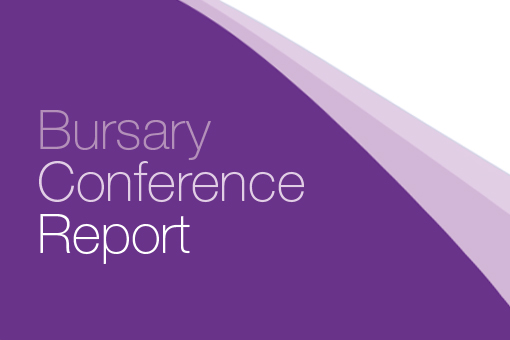ACC Annual Scientific Sessions 2017 - By Prof. Colin Berry

Bursary recipient, Colin Berry reports from Washington DC on the American College of Cardiology Annual Scientific Sessions & Expo, March 2017.
I am grateful to have been supported by a BCS Travel Bursery to participate in the ACC.17 Scientific Sessions that took place in the main conference centre in Washington D.C. My roles at this conference were as Faculty Member, Lecturer and Abstract Presenter.
My specific commitments included the following poster abstract presentations:
Decision Making Using Fractional Flow Reserve Is Associated With Lower Rates of Incomplete Revascularization Compared With Angiographic Guided Decision Making Amongst Patients with NSTEMI (Control#: 13113) in a Poster Session entitled Interventional Cardiology: Intravascular Physiology and Endothelial Function in the morning of March 17th.
Segmental Circumferential Strain Derived From DENSE Predicts Improvement of Left Ventricular Function Post ST Elevation Myocardial Infarction The BHF MR-MI Study (Control#: 11186) in a Poster Contributions entitled Non Invasive Imaging: MR Heart Failure and Pulmonary Hypertension in a Poster Session on the afternoon of Friday March 17th.
Current Smoking, Microvascular Pathology and Adverse Outcome After Acute ST-Segment Elevation Myocardial Infarction: New Pathophysiological Insights (Control#: 10763) Poster Contributions entitled Cardiac Arrest, Diabetes, and Other High Risk Features of Patients with Acute Coronary Syndrome in a poster session on the morning of Saturday March 18th.
Hypertension, Microvascular Pathology and Prognosis in Patients With an Acute ST-Segment Elevation Myocardial Infarction (Control#: 10743) in a Poster Contribution entitled Non Invasive Imaging: MR Structure and Valuvular Heart Disease on the morning of Sunday March 19th.
In addition, the Cardiology and Imaging group from the University of Glasgow had work presented on Sunday 19th as an oral communication by a medical student, Jaclyn Carberry. I attended the session to give Jaclyn my support as her supervisor and she did wonderfully well.
All 5 of these research presentations were realised by research funding from the British Heart Foundation in the form of two Project Grants.
In addition, I participated in a very interesting debate on the pros and cons of new MRI methods for cardiac magnetic resonance imaging of diffuse fibrosis and inflammation in the heart with T1 mapping, and myocardial oedema with T2 mapping. My role in the debate was against the motion (Con): “T1 and T2 Mapping: Ready for Widespread Utilization?” in a Scientific entitled “Great Debates in Cardiac MRI”. It was gratifying to note that a UK cardiologist had been invited to participate in each of the 3 debates in this session. Our presence reflects the UK’s internationally leading role in cardiac magnetic resonance imaging.
Shortly before the conference started the session in which I was due to participate as ACC Panelist titled “Coronary Physiology for the Assessment of Stable CAD” which had been scheduled to run in the morning of March 18 was moved to March 17th due to a scheduling conflict with the Late Breaking Clinical Trials Session. As I was travelling on March 17th I was therefore not available to participate as the panellist and so gave my apologies.
In addition to my direct contributions to the conference proceedings, I had the opportunity to meet academic and industry collaborators to initiate and/or maintain various research studies. I also enjoyed attending the educational sessions, the highlight being the Eugene Brawnwald Lecture given by John Jarcho, Editor of the New England Journal of Medicine and Distinguished Professor of Medicine in Harvard University.
Once again, I am very grateful for the support from the BCS to attend this conference.
Information on how BCS members can apply for support to attend conferences can be found on the Travel Bursaries page
Community Events Calendar


